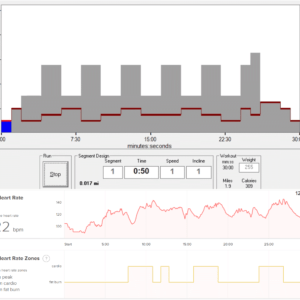There is reason to believe that ketogenic diets may be helpful as adjunct therapies alongside conventional cancer treatment or in conjunction with other metabolic therapies.
Ketogenic diets have long been used for weight loss, reversing type 2 diabetes, and improving other issues related to insulin resistance and metabolic syndrome. But over the last few years, interest has exploded in using keto as a dietary intervention for conditions not previously thought to be metabolic in nature, such as psychiatric conditions like anxiety, depression, and schizophrenia.
Another new frontier for keto is cancer. There’s growing interest in using ketogenic diets in conjunction with conventional cancer treatments to potentially improve outcomes and reduce risk for recurrence.
Note: For the sake of brevity, I have simplified some of the concepts in this article. If you’d like to explore things in more depth, please consult the resources at the end.
Is Cancer a Metabolic Disease?

Cancer is typically seen as resulting from genetic mutations. Mutations in DNA cause cells to become cancerous, eventually leading to all the usual long-term effects of this.
However, therapies based on treating cancer as a genetic disease have had lackluster and disappointing results. Evidence indicates that rather than causing cancer, genetic mutations are the result of changes in the way cells produce energy. In other words, cancer is a metabolic disease.
Cancer Cells Have Altered Metabolism

Cancer cells have compromised energy generation pathways. Most cells can generate energy from a few different kinds of fuel: mainly glucose, fats, and ketones. Oxygen is required to convert fats and ketones into energy, but glucose can be converted into energy in the presence of oxygen as well as when oxygen is absent.
When oxygen is present, glucose, fats and ketones generate relatively large amounts of energy. But when oxygen is absent – in an anaerobic environment – cells become much more dependent on glucose. Unfortunately, much less energy is produced from glucose in the absence of oxygen. This means that more glucose is needed in order to generate the same amount of energy.
In the absence of oxygen, glucose is fermented into lactate. This fermentation process isn’t a bad thing. It’s a normal biochemical process. (For example, when you do intense exercise and your blood can’t deliver as much oxygen as your muscle cells demand, the muscles generate lactate, which can be used for fuel or converted back into glucose.)

“Maybe we’ve mischaracterized the origin of cancer. Maybe cancer is not a genetic disease after all. Maybe we are losing the war against cancer because scientists are chasing a flawed scientific paradigm, and cancer is not a disease of damaged DNA but rather one of defective metabolism.”
Travis Christofferson, Tripping Over the Truth
The unique thing about cancer cells is that even when adequate oxygen is present, they still ferment glucose into lactate. Oxygen is there, but the cells don’t use it. This is called aerobic fermentation, and it’s one of the hallmarks of cancer cells.
(Normally, fermentation occurs in the absence of oxygen, so the term aerobic fermentation calls attention to the fact that fermentation is happening even though oxygen is available.)
As mentioned above, compared to when fuels are converted to energy aerobically (using oxygen), fermentation is much less efficient. It produces much less energy, so more fuel needs to be consumed. Think of it like a fuel that gives your car 40 mpg versus one that gets you 5 mpg. You’ll need much more of the 5-mpg fuel to drive the same distance.
Because cancer cells don’t use oxygen, they need much more glucose to generate their required energy. In fact, cancer cells’ voracious appetite for glucose is why PET scans are used to detect where cancer cells are in someone’s body.
(PET scans use radiolabeled glucose that can be detected by the scanner. Since cancer cells use so much glucose, it’s easy to see where tumors are and where the cancer has spread to.)
Why Anaerobic Fermentation?

The question that forms the foundation of cancer as a metabolic disease (rather than a genetic one) is: why do cancer cells ferment glucose even when oxygen is there? This would be like opting to use the 5 mpg fuel when a big supply of the 40 mpg fuel is readily available.
The reason for this is that cancer cells have mitochondria that are malformed and malfunctioning. Mitochondria are often called the “powerhouses” or “energy factories” of cells. They are the site of the vast majority of energy generation, and they require oxygen in order to do this. But if the mitochondria are deformed (they have a compromised structure), they can’t function properly.
And if mitochondria are malfunctioning, then even when oxygen is available, they won’t be able to use it. As a result, cells will be forced to rely primarily on glucose, which can be converted to energy without oxygen.
Why Keto for Cancer?

The simplest way to say it is that if glucose is the primary fuel for cancer cells, then it stands to reason that you would want as little glucose as possible to be available. And a keto diet could accomplish this by keeping dietary carbohydrate to a bare minimum.
Unfortunately, “starving cancer” isn’t anywhere near this straightforward. Even if you were to consume no carbohydrate at all, your body makes glucose out of other starting materials.
(This is a process called gluconeogenesis. Gluconeogenesis isn’t a bad thing – it’s what keeps us alive during a fast, or on a keto or carnivore diet. But when you’re trying to have as little glucose as possible in your body, you’ve got to work against this hard-wired biochemical process.)
Additionally, some cancer cells have been found to ferment the amino acid glutamine, which is the most abundant amino acid in the body. Protein is an essential macronutrient, and you can’t eat protein without consuming glutamine.
This being said, research is ongoing to study ketogenic diets and fasting as well as hyperbaric oxygen therapy on their own and in conjunction with standard cancer treatments.
Recent Research

Unlike weight loss, type 2 diabetes, PCOS, and other issues related to insulin resistance where the research proves beyond any doubt that keto is highly effective, research on keto and other metabolic therapies for cancer isn’t so ironclad.
The mechanisms are sound, but research is in its early days. At this point in time, ketogenic diets are not a miracle cure for cancer. Research done in animals with cancer has shown a lot of promise but these positive results haven’t translated as powerfully to humans. Research is ongoing to identify how best to fine-tune things to get better outcomes.
A clinical trial is currently underway to study ketogenic diets compared to standard dietary advice for patients with newly diagnosed glioblastoma multiforme (GBM), a type of brain tumor.
A study published earlier this year showed that women with metastatic breast cancer were able to adhere to a ketogenic diet and that metabolic parameters (like fasting insulin and glucose, as well as body fat) improved. The study wasn’t designed to assess outcomes with regard to the cancer, but it established that keto is safe for women with breast cancer, and this paves the way for future research.

Current research is promising, but it’s worthwhile to balance optimism with a realistic outlook based on outcomes so far. A meta-analysis published earlier this year concluded, “…there is insufficient evidence to establish a definitive link between the KD and cancer-related parameters. While some studies suggest potential benefits in terms of some outcomes and tumor size reduction, further research is required to fully comprehend the effects of this diet.”
However, they also acknowledged that more research is needed, and that there is some evidence showing keto can improve quality of life during cancer treatment for a host of reasons, including reducing the adverse side-effects of conventional therapies: “…this diet holds promise as a complementary treatment alongside conventional therapies like chemotherapy or radiotherapy, as it can help mitigate the side effects of these treatments.”
Individual case reports support the use of keto for cancer in patients with GBM, lung cancer, and breast cancer.
The number of these reports is growing as more cancer patients opt to include ketogenic diets and other metabolic approaches in their treatment, so there’s reason to be “cautiously optimistic” while acknowledging that metabolic therapies for cancer are far more complex than just cutting carbs and that keto is by no means a slam dunk for cancer.
Summing Up

There is reason to believe that ketogenic diets may be helpful as adjunct therapies alongside conventional cancer treatment or in conjunction with other metabolic therapies. There are numerous individual anecdotes of people using keto successfully to put their cancer into remission (typically in conjunction with standard treatments), but the published research to date is less robust.
fdsfsResearch suggests that a ketogenic metabolism may make cancer cells more susceptible to the effects of standard treatment while keeping healthy cells more robust. This may facilitate a reduction in the doses of chemotherapy drugs needed, which could potentially reduce the destructive side effects. Of course, always work with your medical care team to determine the best course of action for your situation.
Resources to Learn More

If you’d like to learn more about how and why ketogenic diets can be used as adjunct therapies alongside conventional cancer treatment, I recommend these resources:
- Keto for Cancer, by Miriam Kalamian
- Fight Cancer with a Ketogenic Diet, by Ellen Davis
- The Metabolic Approach to Cancer, by Nasha Winters and Jess Higgins Kelley
- Tripping Over the Truth, by Travis Christofferson
- Metabolic Nutrition for Cancer – an online course with oncologist Dr. Christy Kesslering (offered through Adapt Your Life Academy)
- Remission Nutrition – nutritionists who specialize in metabolic therapies for cancer
- Human Performance Outliers Podcast – episode 40: interview with Thomas Seyfried, PhD. (Dr. Seyfried is one of the world’s leading experts in metabolic therapies for cancer.)
- If you are especially science-minded and want to dig into the biochemistry, you may be interested in Dr. Seyfried’s book – Cancer as a Metabolic Disease.
Looking for a low-carb meal that only takes seconds to make?
Then check out Keto Chow! Keto Chow is a keto-friendly shake with 1/3 of your daily recommended nutrients. It tastes like melted ice cream, and it’s great for on-the-go travel. Choose from over 25 delicious flavors!


























